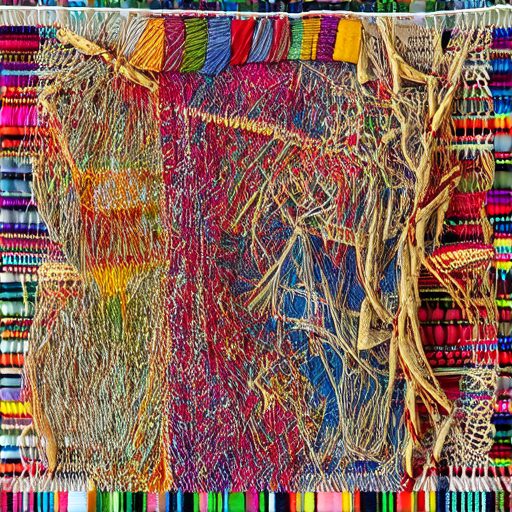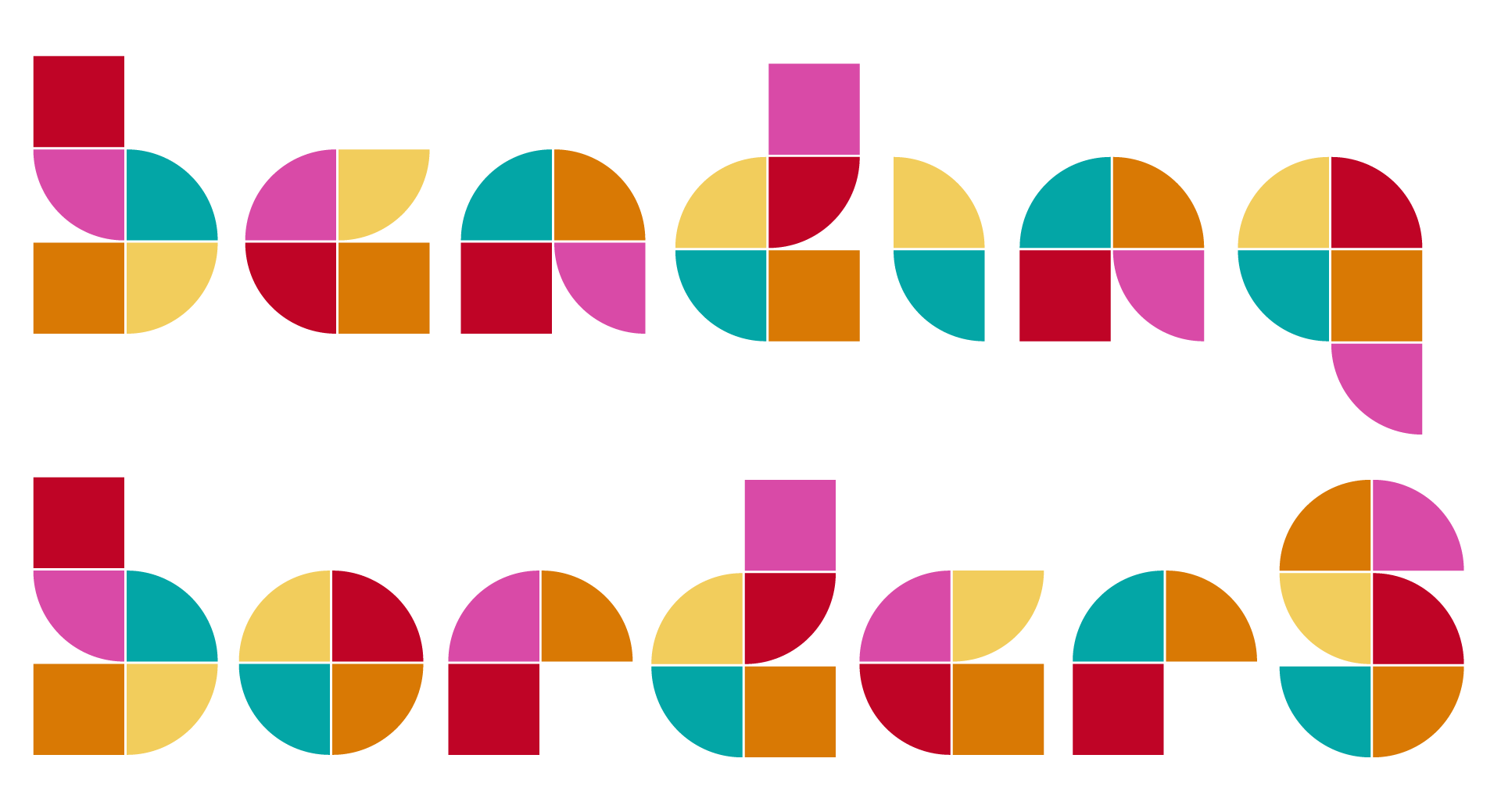In today’s interconnected world, cultural exchange plays a vital role in breaking down barriers and fostering understanding among nations. As people from diverse backgrounds come together, they share their customs, traditions, and values, creating a rich tapestry of experiences that enrich our lives. From the Silk Road, where merchants traded goods and ideas across vast distances, to modern-day cultural exchange programs, the power of sharing our cultures has been a driving force behind human progress.

Why Exchanging Culture is Important
Cultural exchange has the power to break down barriers and bring people together, fostering a deeper understanding and appreciation of diverse perspectives.
-
Breaking Down Stereotypes
Cultural exchange allows individuals to challenge their own biases and stereotypes, promoting empathy and tolerance towards others.
-
Fostering Global Citizenship
By embracing cultural differences, we can develop a sense of shared humanity and responsibility towards the global community.
-
Promoting Cross-Cultural Understanding
Cultural exchange enables individuals to gain insight into the customs, traditions, and values of other cultures, breaking down cultural silos and promoting mutual respect.
-
Encouraging Collaboration and Innovation
Cultural exchange can lead to innovative solutions and collaborations, as individuals from diverse backgrounds come together to share ideas and expertise.
At Bending Borders , we believe that cultural exchange is essential for building a more inclusive and compassionate world.
-
Embarking on a Journey of Cultural Discovery
We invite you to join us on a journey of cultural exploration, where you can discover new perspectives, challenge your assumptions, and develop a deeper understanding of the world around you.
-
Connecting with Others Across Borders
Through our programs and initiatives, we aim to bridge cultural divides and foster meaningful connections between individuals from diverse backgrounds.
-
Empowering Global Citizens
We empower individuals to become active participants in shaping a more just and equitable world, where cultural diversity is celebrated and valued.
Join us in our mission to promote cross-cultural understanding, empathy, and collaboration. Together, let’s break down barriers and build a brighter future for all.
The Cultural Exchange of Globalization
Cultural exchange is a vital component of globalization, enabling the sharing of ideas, customs, and traditions between diverse societies.
- Breaking Down Barriers: Globalization has facilitated the breakdown of geographical, linguistic, and cultural barriers, fostering cross-cultural understanding and cooperation.
- Sharing Ideas and Customs: Cultural exchange allows individuals to share their unique perspectives, values, and practices, enriching the global community and promoting mutual respect.
- Embracing Diversity: By embracing diversity, we can learn from each other’s strengths and weaknesses, leading to personal growth and a more harmonious coexistence.
Examples of Cultural Exchange:
- Language Learning: With the rise of language learning apps and online platforms, people can now easily access and learn languages from around the world, bridging communication gaps and facilitating international collaboration.
- Culinary Exchange: Food plays a significant role in cultural exchange, with cuisines from various countries influencing each other and resulting in the creation of new flavors and dishes.
- Festivals and Celebrations: Cultural festivals and celebrations have become increasingly popular, allowing people to experience and appreciate different traditions and customs firsthand.
Benefits of Cultural Exchange:
- Increased Understanding: Cultural exchange promotes empathy and understanding among nations, reducing stereotypes and misconceptions.
- Economic Growth: Cultural exchange can lead to increased trade, tourism, and economic cooperation between countries, driving growth and development.
- Personal Growth: Engaging in cultural exchange can broaden one’s perspective, foster creativity, and enhance personal growth.
By embracing cultural exchange, we can build a more inclusive, tolerant, and connected world, where diversity is celebrated and differences are cherished.

What Does it Mean to Promote Cultural Exchange?
As someone who has embarked on a journey of cultural discovery, I can attest that promoting cultural exchange is a powerful way to foster empathy and respect for different cultures, traditions, and beliefs.
- Breaking Down Barriers: Cultural exchange programs allow individuals to step out of their comfort zones and engage with people from diverse backgrounds, breaking down barriers and challenging stereotypes.
- Cross-Cultural Understanding: By immersing themselves in foreign cultures, participants gain a deeper understanding of the complexities and nuances of different societies, leading to increased tolerance and appreciation.
- Personal Growth: Cultural exchange experiences often lead to personal growth, as individuals develop new skills, adapt to unfamiliar environments, and discover hidden strengths.
In today’s interconnected world, promoting cultural exchange is more crucial than ever. It enables us to navigate the complexities of globalization, build bridges between communities, and create a more harmonious and inclusive society.
- Language Skills: Learning a new language is an essential aspect of cultural exchange, allowing individuals to communicate effectively and connect with others on a deeper level.
- Culinary Experiences: Sharing meals and cooking techniques with people from different cultures enriches our culinary knowledge and fosters a sense of community.
- Festivals and Traditions: Participating in local festivals and celebrations provides a unique opportunity to learn about and appreciate the customs and traditions of other cultures.
At Bending Borders , we believe that cultural exchange is a powerful tool for building bridges between communities and promoting cross-cultural understanding. Join us on this journey of discovery and explore the many ways in which cultural exchange can enrich our lives.
Learn More About Breaking Borders Discover Cultural Immersion Opportunities Find Language Exchange Programs Explore Festivals and Celebrations Around the World
Cultural Appropriation vs Exchange
Cultural exchange is a beautiful thing – it allows us to learn from and appreciate the traditions, customs, and ways of life from around the world.
- Cultural Appropriation: On the other hand, cultural appropriation occurs when elements of a minority culture are taken and used by people from a dominant culture without permission, understanding, or compensation.
- Stereotypes and Misrepresentation: Cultural appropriation often involves stereotypes and misrepresentation, which can be hurtful and damaging to the cultures being borrowed from.
- Lack of Authenticity: Cultural appropriation can also lack authenticity, as the borrowing culture may not fully understand or respect the cultural significance of what they’re taking.
The Importance of Cultural Exchange
Cultural exchange, on the other hand, is a two-way street where both parties learn from and appreciate each other’s cultures.
- Mutual Respect: Cultural exchange is built on mutual respect and understanding, where both parties recognize the value and significance of each other’s cultures.
- Avoiding Stereotypes: Cultural exchange avoids stereotypes and misrepresentation, instead focusing on authentic and respectful portrayals of different cultures.
- Bridging Gaps: Cultural exchange helps bridge gaps between different cultures, fostering greater understanding and empathy.
Collaborating with Members of the Culture Being Represented
One way to ensure authenticity and avoid cultural appropriation is to collaborate with members of the culture being represented.
- Authentic Representation: Collaboration ensures authentic representation, as members of the culture being represented can provide valuable insight and guidance.
- Respect and Understanding: Collaboration fosters respect and understanding, as both parties work together to create something meaningful and respectful.
- Empowerment: Collaboration empowers marginalized communities, giving them a voice and agency in how their culture is represented.
We believe that cultural exchange is a powerful tool for building bridges and fostering greater understanding between different cultures.
At Bending Borders , we’re committed to promoting cultural exchange and avoiding cultural appropriation.
By working together and respecting each other’s cultures, we can create a more inclusive and empathetic world.
Learn more about cultural exchange and how you can get involved at our website .
Discover the beauty of cultural exchange and join us in promoting greater understanding and respect between different cultures.
Together, we can bend borders and build a more inclusive world.
Cultural Exchange Examples
Cultural exchange is a vital aspect of understanding and appreciating diversity worldwide.
- A school trip to another country can be an excellent opportunity for students to immerse themselves in a foreign culture, learn new customs, and develop language skills.
- Visiting a cultural venue, such as a museum or art gallery, featuring exhibits and artifacts from various cultures can foster cross-cultural understanding and appreciation.
- Culture-sharing events, where individuals from diverse backgrounds come together to share their traditions, music, food, and dance, promote unity and celebrate differences.
- Language exchange programs allow people to practice speaking and listening skills in a foreign language, helping to bridge communication gaps between cultures.
- Homestay programs enable international students to live with local families, gaining insight into daily life, customs, and values of the host culture.
- Volunteering abroad provides opportunities to engage with local communities, participate in cultural activities, and contribute to social causes, promoting mutual understanding and respect.
- International festivals and celebrations, such as Diwali, Chinese New Year, or Carnaval, bring people together to share in the joy and richness of diverse cultures.
- Online platforms and social media groups dedicated to cultural exchange facilitate connections between individuals from around the world, enabling the sharing of ideas, experiences, and perspectives.
By participating in these cultural exchange initiatives, we can broaden our horizons, challenge our assumptions, and cultivate empathy and understanding towards others.
Practicing Cultural Exchange in Schools
Schools play a crucial role in fostering cultural exchange through various programs and activities:
- Intercultural clubs and organizations promote diversity awareness, organize cultural events, and provide a platform for students to share their heritage.
- Language classes and exchange programs enable students to learn new languages and communicate with peers from different linguistic backgrounds.
- Cultural festivals and events showcase traditional music, dance, food, and crafts, celebrating the rich tapestry of human experience.
- Service-learning projects and volunteer opportunities encourage students to engage with local communities, developing essential life skills and cultural competence.
Embracing Global Citizenship
Cultural exchange is an integral part of becoming a global citizen, recognizing our shared humanity and interconnectedness.
As we navigate an increasingly complex and interconnected world, embracing cultural exchange can help us:
- Broaden our perspectives and challenge our biases
- Foster empathy and understanding towards others
- Cultivate a sense of belonging and connection to the global community
By embracing cultural exchange, we can create a more inclusive, compassionate, and harmonious world, where diversity is celebrated and valued.

The 3 Ps of Cultural Appropriation
Cultural appropriation occurs when a dominant cultural group takes elements from minority cultures without permission, understanding, or compensation.
-
Property
Cultural appropriation often involves taking intellectual property, traditional knowledge, or cultural expressions without permission or credit.
- Examples include using indigenous designs without permission or crediting the original creators.
- This can lead to cultural erasure and exploitation.
-
Privilege
Cultural appropriation often relies on systemic power imbalances, where dominant groups have more access to resources, influence, and platforms.
- This allows them to amplify their own voices and cultural expressions while silencing or marginalizing those of minority groups.
- Privilege can also manifest in the ability to profit from cultural appropriation without facing consequences.
-
Profit
Cultural appropriation often serves economic interests, where dominant groups profit from cultural expressions, traditions, or symbols without compensating the original creators or communities.
- This can lead to cultural commodification, where cultural expressions are reduced to marketable products or trends.
- Profit-driven cultural appropriation can perpetuate inequality and reinforce systemic injustices.
Understanding the 3 Ps of cultural appropriation is crucial for promoting cultural sensitivity, respect, and equity.

0 Comments